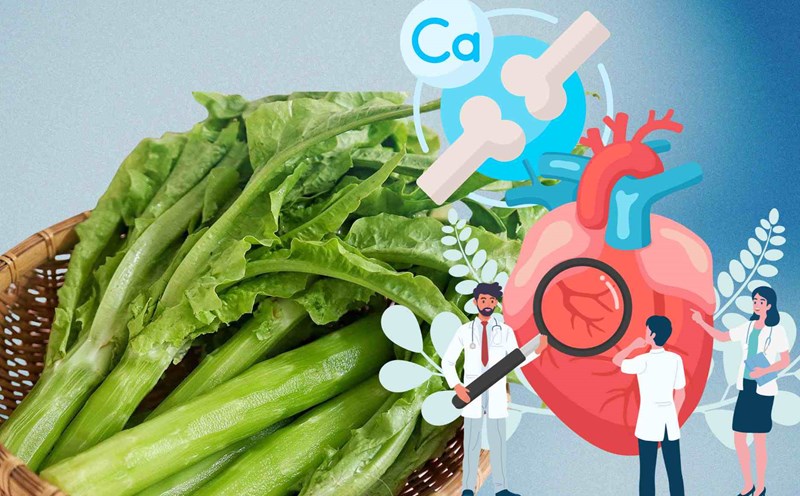Five food groups that are good for the heart
Heart disease is the leading cause of death in adults, but according to experts, just a small adjustment in the daily menu can make a big difference in health.
"A heart-healthy diet doesn't have to be too strict, just prioritize fresh, whole foods and limit processed foods," said Carrie Madormo, a nutritionist and public health nutritionist in the US.
Fruits and vegetables: This is the foundation of a healthy diet. Try to make at least half a plate of fruit and vegetables at each meal. Green leafy vegetables such as spinach, kale, or berries such as blueberries, strawberries, oranges, and apples are rich in antioxidants and fiber that help reduce cholesterol.
Whole grains: Unrefined grains such as brown rice, oats, quinoa, barley and whole wheat bread are rich in fiber, which helps control blood pressure and reduce blood fat.
Lean protein: Prioritize low-fat protein sources such as fish, skinless chicken, eggs, lentils, tofu or unsalted seeds. Skin protein helps maintain stable energy without increasing bad cholesterol, says nutritionist Maggie Moon, Master of Science, member of the American Council of Medical Experts.
Healthy fats: Not all fats are bad. Plant oils such as olive oil, avocado oil, and foods such as salmon, avocados, and walnuts help increase good cholesterol and reduce the risk of blood vessel blockage.
Low-fat milk: Instead of whole milk, choose milk, yogurt or low-fat cheese. This is an essential source of calcium for the heart and bones without increasing saturated fat.
Nurtury-rich options like walnuts, wild blueberries, and green leafy vegetables help maintain arterial flexibility, support blood circulation, and control cholesterol, emphasized Ms. Maggie Moon.
Foods to limit to keep your heart healthy
Along with supplementing good foods, it is necessary to avoid groups that are harmful to the cardiovascular system.
saturated fat and trans fats: Found in fatty red meat, butter, fried foods, cookies, French fries. They increase bad cholesterol (LDL) and the risk of atherosclerosis.
Natri (salt): Often found in processed foods, canned foods, pizza, industrial dipping sauce. absorbing too much salt can easily lead to high blood pressure, the silent enemy of the heart.
Added sugar: Found in cakes, soft drinks, ice cream, and many snacks. Read product labels to avoid sugar sources such as fructose, sucrose, maltose or corn syrup.
Processed meats: Bacon, sausage or cold meat contain a lot of salt and preservatives, which can easily increase the burden on the heart.
Alcohol: Drinking a lot of alcohol not only damages the liver but also affects blood pressure and reduces the absorption of necessary nutrients.
adults should prioritize a Mediterranean or DASH diet, which has been shown to reduce cardiovascular risk and improve blood pressure, recommends Dr. Maggie Moon.
Eat healthy, live healthy
A heart-healthy menu can be grilled chicken with brown rice, grilled salmon with vegetables or oats with fresh berries.
"There is no need to force yourself to abstain too much. Start with small, sustainable changes, such as reducing salt, increasing green vegetables, and choosing vegetable oils over butter, advises quarry Madormo.
When your heart is healthy, your body is healthy, and your life will also be longer thanks to the right nutritional choices every day.











